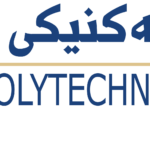- HAZIM KHALID HASSAN
- hazim.k1441@gmail.com
- 0750 449 5854
- دور القيادة الذكية في تعزيز مهارات التفكير الرياضي -رسالةماجستير - حازم خالد حسن
-
المستخلص
الإطار العام للدراسة: يتمثل الإطار العام للدراسة بمشكلة الدراسة التي حددت بإثارة تساؤلات عدة حول طبيعة العلاقة والتأثير بين المتغير المستقل (القيادة الذكية) والمتغير التابع (مهارات التفكير الرياضي) ولأجل ذلك تم تصميم مخطط فرضي؟ للدراسة عبر مجموعة من الفرضيات الرئيسية، ولأجل التاكد من صحة الفرضيات خضعت جميعها لاختبارات متعددة، واستخدمت الدراسة استمارة الاستبانة كأداة لجمع البيانات.
الهدف: تسعى الدراسة الحالية الى معرفة الاهمية الترتيبية لمتغيرات الدراسة وأبعادها، وتحليل علاقة الارتباط والتأثير والتباين للمتغير المستقل وأبعادها المتمثلة بـ (الذكاء العقلاني، الذكاء الشعوري، الذكاء الروحي) في المتغيرالتابع وأبعادها المتمثلة بـ (المهارات المعرفية، مهارات التفكير المركب،مهارات الاتصال الرياضي).
منهج الدراسة: انتهجت الدراسة المنهج الوصفي التحليلي، حيث تم وصف المتغيرات الرئيسية والفرعية وكذلك تحليل علاقات الارتباط والتأثير والتباين بين متغيرات الدراسة.وقد تمثل المجتمع الدراسة الجميع التدريسين في قسم الرياضيات فى كليات عدد من الجامعات الحكومية والبالغ عددهم (101) تدريسي، ومثلث عينتها أيضاً، وتمثل أقسام الرياضيات في كليات عدد من الجامعات الحكومية ميداناً للدراسة،وتم اختبار الفرضيات من خلال البرنامج الإحصائي (SPSS V.26).
الاستنتاجات والمقترحات: توصلت الدراسة الى مجموعة من الاستنتاجات الرئيسية منها وجود علاقة ارتباط معنوية موجبة بمستوى عالٍ بين القيادة الذكية و مهارات التفكير الرياضي على المستوى الكلي والجزئي وهذا يؤكد على مساهمة القيادات الذكية في أقسام الرياضيات في كليات عدد من الجامعات الحكومية في تعزيز مهارات التفكير الرياضي، فضلاً عن وجود تأثير ايجابي وبمستويات معنوية لمتغير القيادة الذكية في مهارات التفكير الرياضي.واقترحت الدراسة مجموعة من المقترحات أهمها ضرورة العمل للمحافظة على المستوى العالي لمهارات التفكير الرياضي من خلال تمتع رؤساء أقسام الرياضيات بالقدرة على التركيب والتلخيص وإعادة البناء من أجل امتلاك المهارات اللازمة لاداء مهامهم.
الكلمات المفتاحية: القيادة الذكية،مهارات التفكير الرياضي،المهارات المعرفية،مهارات التفكيرالمركب، مهارات الاتصال الرياضي، أقسام الرياضيات, الجامعات الحكومية .
- Erbil Technical Administrative Institute
- Management Information System
- Bussiness Admistration
- Aram Ibrahim Qanbar
- aram.qanbar@mhe-krg.org
- 0750 445 3098
- ئارام_ابراهيم_قنبر 24-08-2023
-
The current study aims to analyze the relationship and impact between the occupational safety management system with its requirements (safety policy, risk management system, documents and information, training and efficient awareness, consulting and communication) and sustainable performance (economic performance, social performance, environmental performance) in Dana Gas in Sulaymaniyah city.
After reviewing a group of studies and literature, theoretical concepts were written and a model and hypotheses were built based on the requirements of the occupational safety management system and sustainable performance, and based on the nature of the study and the objectives it seeks to achieve, the analytical descriptive approach was relied upon. In order to collect data, the questionnaire was relied upon, and (150) questionnaires were distributed directly to all members of society represented by the heads of units and administrative departments, supervisors and employees of Dana Gas Company in the city of Sulaymaniyah, who numbered (146) individuals throughout the company, according to the company's data during Conducting the study. After sorting and checking the received forms directly, the number of valid questionnaires for analysis reached (127). The researcher used several statistical methods, including arbitrators and Cronbach's alpha, to ensure validity and reliability, and to test the normal distribution, independence, homogeneity of variance, the simple correlation coefficient, and the simple regression coefficient using the (SPSS-26) program. The results of the study showed that there is a positive correlation and effect between the variables and dimensions of the study. Based on the results and conclusions, a number of recommendations were made related to the need for the company to focus on the requirements of the occupational safety management system in order to achieve the sustainable performance of the researched company. Recommendations were also presented to other companies, institutions and departments, and proposals for future studies in this field.
Keywords: occupational safety management system requirements - sustainable performance - Dana Gas Company - Sulaymaniyah City - Kurdistan Region of Iraq.
- Erbil Technical Administrative College
- Business Administration
- Technical Business Administration
- Vian hussain baker
- vyanxoshnaw3@gmail.com
- 0750 447 9665
- دور عمليات الادارة الاستراتيجية في تمكين العاملين
-
The current study aimed to analyze the impact of strategic management in the General Directorate of Electricity in Erbil Province on employee empowerment, including its dimensions (delegation of authority, participation in decision-making, psychological empowerment, work environment, and participation in teams). The study addressed a specific problem within its general framework, which raised questions about the relationship, impact, and variation between two main variables: the independent variable (strategic management) and the dependent variable (empowerment). To achieve this purpose, a theoretical framework was designed, including five main hypotheses (1. Testing the relationship hypothesis, 2. Analyzing the impact between study variables, 3. Testing the variation hypothesis, 4. Testing the differences hypothesis). To ensure the validity of these hypotheses, multiple tests were conducted, and a questionnaire was used as a data collection tool in the study. The study adopted a descriptive-analytical approach, describing the main and sub-variables and analyzing the relationships and impact between the variables.The study population comprised the General Directorate of Electricity in Erbil city, including nine directorates and their affiliated departments, with a total of 198 electrical engineers. A total of 150 questionnaires were distributed to the research participants, and 131 valid questionnaires were collected for analysis. The hypotheses were tested using various statistical analyses through the SPSS software version 22.
The study resulted in several key findings, including the discovery of significant positive relationships between the impact of strategic management and employee empowerment at both the overall and partial levels. This confirms the utility of strategic management in the researched directorates and its contribution to employee empowerment. The study also revealed a positive impact of strategic management on empowerment, supported by significant indicators at the overall level. Furthermore, the regression results indicated that each dimension of empowerment (delegation of authority, participation in decision-making, psychological empowerment, work environment, and participation in teams) contributed to this impact.
Based on the findings, the study proposes several important recommendations, including the need to enhance and activate the role of employees and involve them in all directorate activities, utilizing their abilities for the directorate's benefit, and leveraging their accumulated experiences in building future strategies and setting strategic goals.
Keywords: Strategic management, Empowerment, General Directorate of Electricity in Erbil.
- Shaqlawa Technical College
- Information technology
- Business Administration
- Alendy Abdulahad Mansor
- alandiabdulahad@epu.edu.iq
- 0751 402 6749
- رسالة ماجستير الندي عبدالاحد منصور
-
Abstract
Purpose: The study aims to analyze the role of agricultural workers’ performance with its dimensions (work quality, innovation and creativity, job satisfaction, and employee efficiency) in the effectiveness of administrative decisions with its dimensions (time and speed of administrative decisions, ease implementation of administrative decisions, quality of administrative decisions and acceptance of administrative decisions).
Methodology: the methodology adopted by the study is to identify the study’s problem by examining several questions and concentrating on the nature of the relationship, impact, and variance between the performance of agricultural workers and the effectiveness of administrative decisions. Based on that, a hypothetical scheme was designed for the study, and six main hypotheses emerged from it to verify the validity of the hypotheses; it was subjected to a set of statistical tests.
Method: the study followed the descriptive-analytical method, as the study’s variables and dimensions were described, and the study population was represented by the General Directorate of Agriculture in Erbil and its affiliated departments, it included (235) agricultural engineers and (153) questionnaires were distributed to the respondents, and (144) forms valid for analysis were obtained, and the relationship, impact, and variance by applying the statistical methods through SPSS version 24.
Findings: the study reached several conclusions, most notably the presence of good levels of agricultural workers’ performance, and there is also the existence of the effectiveness of administrative decisions in the
A
General Directorate of Agriculture and its affiliated departments in Erbil governorate. The results indicate correlations and influences between the agricultural workers’ performance and the effectiveness of administrative decisions at the macro and micro levels. The results showed the variance of the General Directorate of Agriculture and its affiliated departments in the effectiveness of administrative decisions according to the different levels of focus on the dimensions of the agricultural workers’ performance. Finally, the study also showed no significant variances, meaning that they are statistically significant for the General Directorate of Agriculture regarding the study variables, depending on their different personal characteristics.
Recommendations: the researcher recommended retaining good levels of agricultural workers’ performance because an increase in agricultural workers’ performance can translate into an increase in farmers’ income. Also, the need to maintain the effectiveness of administrative decisions and their dimensions by supporting and enhancing interaction with beneficiaries and providing them with as much information as possible. Continuing to pay attention to agricultural engineers with high skills and accumulated experience and to develop plans and programs to activate the role of agricultural engineers and cadres in a way that makes them more effective. The need to invest in the strong relationship between agricultural workers’ performance and the effectiveness of administrative decisions at the macro and micro levels, direct this relationship towards the best agricultural service and present some recommendations regarding future studies.
Keywords: workers’ performance, effectiveness of administrative decisions, General Directorate of Agriculture in Erbil.
- Shaqlawa Technical College
- Tourism Foundation Administration
- Business Administration


